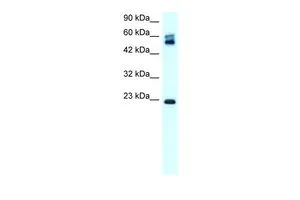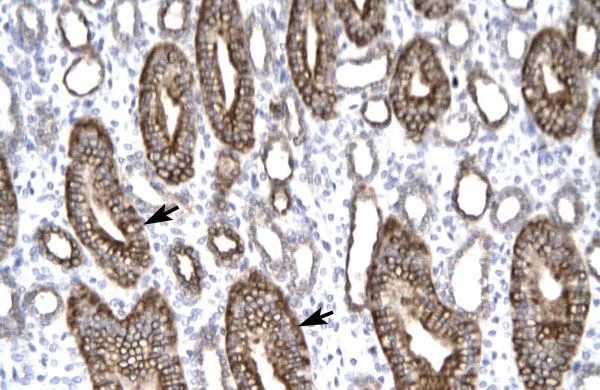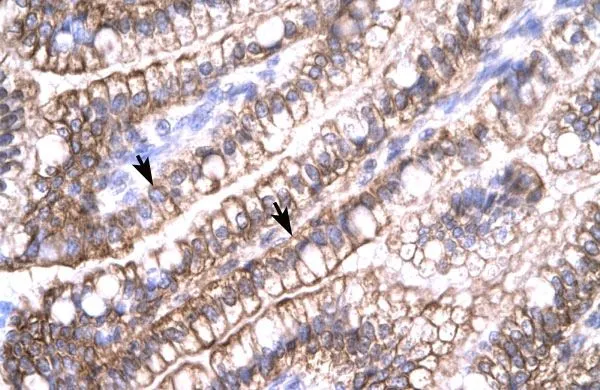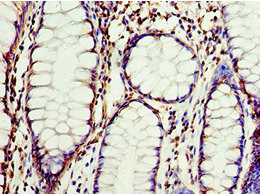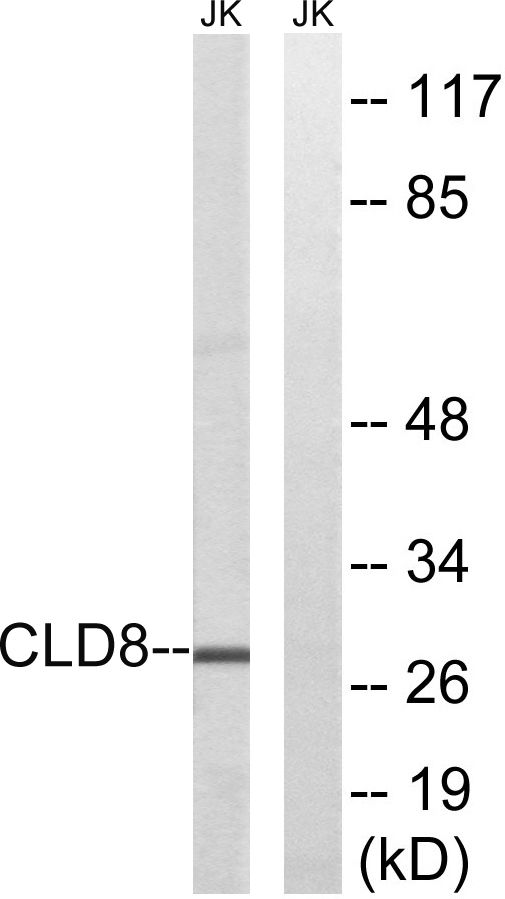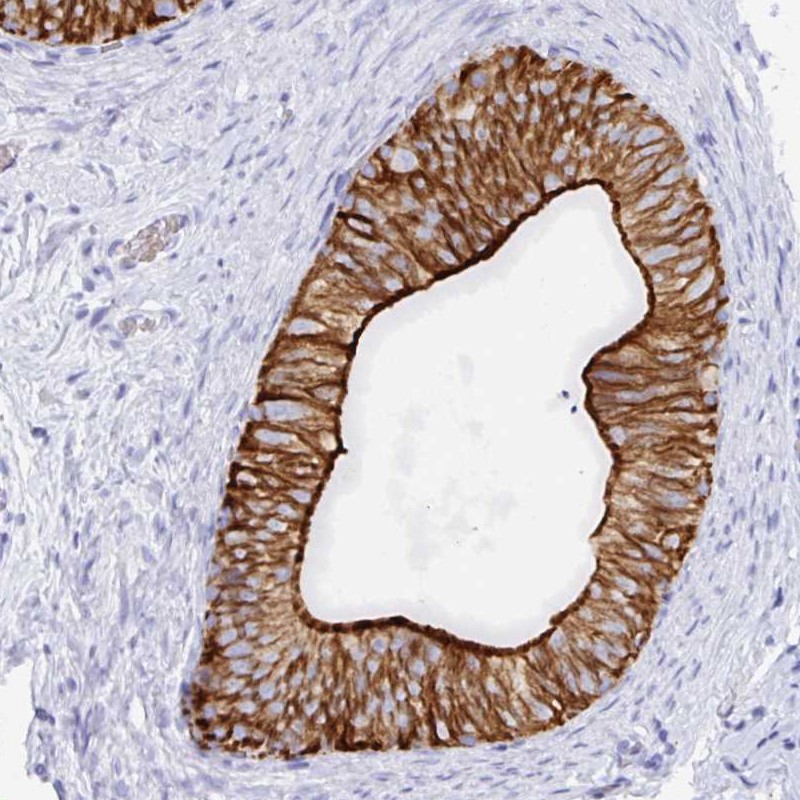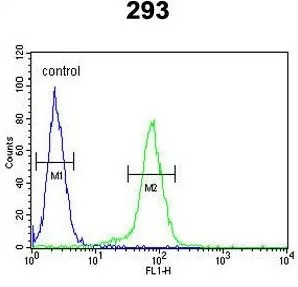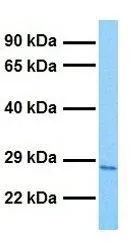
WB analysis of 293T cells using GTX77832 Claudin 8 antibody at 1.0μg/ml.
Claudin 8 antibody, C-term
GTX77832
ApplicationsImmunoFluorescence, Western Blot, ImmunoCytoChemistry, ImmunoHistoChemistry, ImmunoHistoChemistry Paraffin
Product group Antibodies
ReactivityHuman, Mouse
TargetCLDN8
Overview
- SupplierGeneTex
- Product NameClaudin 8 antibody, C-term
- Delivery Days Customer9
- Application Supplier NoteWB: 0.2-2.5 ug/ml. IHC-P: 2-10 ug/ml. *Optimal dilutions/concentrations should be determined by the researcher.Not tested in other applications.
- ApplicationsImmunoFluorescence, Western Blot, ImmunoCytoChemistry, ImmunoHistoChemistry, ImmunoHistoChemistry Paraffin
- CertificationResearch Use Only
- ClonalityPolyclonal
- Concentration0.5-1 mg/ml
- ConjugateUnconjugated
- Gene ID9073
- Target nameCLDN8
- Target descriptionclaudin 8
- Target synonymsHEL-S-79, claudin-8, epididymis secretory protein Li 79
- HostRabbit
- IsotypeIgG
- Protein IDP56748
- Protein NameClaudin-8
- Scientific DescriptionThis gene encodes a member of the claudin family. Claudins are integral membrane proteins and components of tight junction strands. Tight junction strands serve as a physical barrier to prevent solutes and water from passing freely through the paracellular space between epithelial or endothelial cell sheets, and also play critical roles in maintaining cell polarity and signal transductions. This protein plays important roles in the paracellular cation barrier of the distal renal tubule, and in the paracellular barrier to prevent sodium back-leakage in distal colon. Differential expression of this gene has been observed in colorectal carcinoma and renal cell tumors, and along with claudin-7, is an immunohistochemical marker for the differential diagnosis of chromophobe renal cell carcinoma and renal oncocytoma.[provided by RefSeq, May 2010]
- ReactivityHuman, Mouse
- Storage Instruction-20°C or -80°C,2°C to 8°C
- UNSPSC41116161

